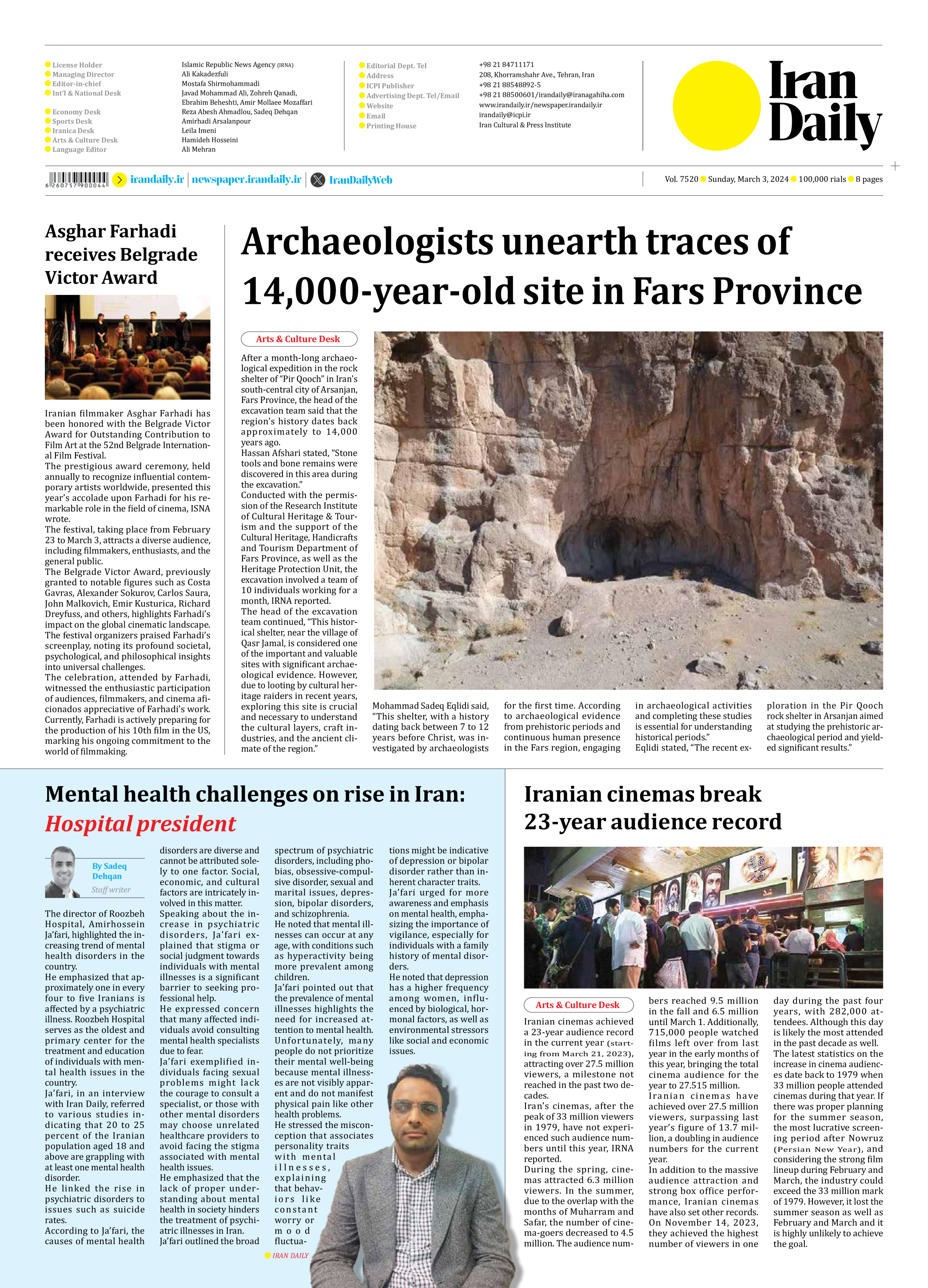
Mental health challenges on rise in Iran: Hospital president
By Sadeq Dehqan
Staff writer
The director of Roozbeh Hospital, Amirhossein Ja’fari, highlighted the increasing trend of mental health disorders in the country.
He emphasized that approximately one in every four to five Iranians is affected by a psychiatric illness. Roozbeh Hospital serves as the oldest and primary center for the treatment and education of individuals with mental health issues in the country.
Ja’fari, in an interview with Iran Daily, referred to various studies indicating that 20 to 25 percent of the Iranian population aged 18 and above are grappling with at least one mental health disorder.
He linked the rise in psychiatric disorders to issues such as suicide rates.
According to Ja’fari, the causes of mental health disorders are diverse and cannot be attributed solely to one factor. Social, economic, and cultural factors are intricately involved in this matter.
Speaking about the increase in psychiatric disorders, Ja’fari explained that stigma or social judgment towards individuals with mental illnesses is a significant barrier to seeking professional help.
He expressed concern that many affected individuals avoid consulting mental health specialists due to fear.
Ja’fari exemplified individuals facing sexual problems might lack the courage to consult a specialist, or those with other mental disorders may choose unrelated healthcare providers to avoid facing the stigma associated with mental health issues.
He emphasized that the lack of proper understanding about mental health in society hinders the treatment of psychiatric illnesses in Iran.
Ja’fari outlined the broad spectrum of psychiatric disorders, including phobias, obsessive-compulsive disorder, sexual and marital issues, depression, bipolar disorders, and schizophrenia.
He noted that mental illnesses can occur at any age, with conditions such as hyperactivity being more prevalent among children.
Ja’fari pointed out that the prevalence of mental illnesses highlights the need for increased attention to mental health. Unfortunately, many people do not prioritize their mental well-being because mental illnesses are not visibly apparent and do not manifest physical pain like other health problems.
He stressed the misconception that associates personality traits with mental illnesses, explaining that behaviors like constant worry or mood fluctuations might be indicative of depression or bipolar disorder rather than inherent character traits.
Ja’fari urged for more awareness and emphasis on mental health, emphasizing the importance of vigilance, especially for individuals with a family history of mental disorders.
He noted that depression has a higher frequency among women, influenced by biological, hormonal factors, as well as environmental stressors like social and economic issues.







